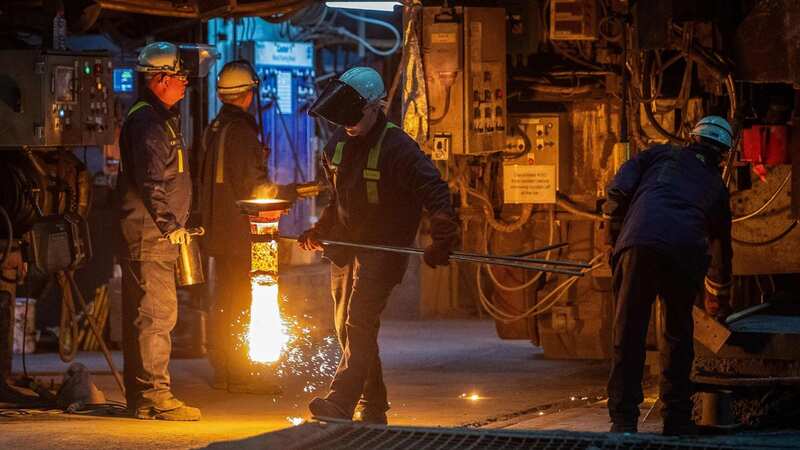Scrap steel 'should stay in UK to help industry's fight against climate change'

Scrap steel should stay in the UK to boost production and fight climate change, the industry urged today.
Trade body UK Steel warned shipping waste metal overseas for processing could jeopardise plans to transform the sector in the coming years. It fears exporting scrap to countries with lower environmental standards could fuel carbon emissions. It wants the waste steel to stay in Britain so it can be used in plants being converted from coal-fired blast furnaces to greener electric arc systems.
Scrap steel is the main “feedstock” for the less-polluting furnaces. UK Steel director-general Gareth Stace said: “It just makes sense that, here in the UK, we make the most of this resource which we have in abundance rather than letting it go and importing raw materials instead. Exporting huge volumes of this precious material only creates a bigger carbon footprint and means we are shirking our environmental responsibilities.
"Steel scrap is core to our rapid transition to net-zero. Next to major government funding commitments and competitive industrial electricity prices, scrap policy is the final piece of the jigsaw to enable the decarbonisation of the UK steel sector and a low-carbon, circular economy.”
The steel industry is blamed for 14% of the UK’s industrial emissions and 2.7% of all Britain’s greenhouse gases. Tata Steel’s Port Talbot plant is due to switch to electric arc furnaces, while British Steel plans new electric systems at Teesside and Scunthorpe, Lincs, as the sector tries to slash emissions.
 Teachers, civil servants and train drivers walk out in biggest strike in decade
Teachers, civil servants and train drivers walk out in biggest strike in decade
Some 80% of the 10 million tonnes of scrap steel generated in Britain every year is sent abroad. More than half goes to countries which are not in the Organisation for Economic Co-operation and Development and which, critics say, have “lower social and environmental protections”.
UK Steel said Britain’s industry sector will need three times as much scrap steel as is currently available to deliver its net-zero ambition. It warned: “As steelmakers in the UK and abroad journey towards decarbonising, steel scrap will become an increasingly sought after raw material, with global demand expected to rise by 30% by 2030 and over 60% by 2050.” Its latest report, Steel Scrap: A Strategic Raw Material for Net Zero Steel, says the “UK risks stripping itself of a vital resource to produce net-zero steel at a time of rising domestic demand”. The study recommends only allowing scrap exports to countries “that can demonstrate their ability to treat waste sustainably”; incentivising keeping scrap metal in Britain “by reducing price support offered to scrap exports”; and taking measures to improve the quality of scrap metal.
Mr Stace added: “The UK’s steel sector is undertaking a radical transformation on its journey to net-zero and steel scrap will be at the heart of this. What is shocking is that the UK produces more than 10 million tonnes of scrap a year, but exports over 80% of it. With so many countries around the world acting swiftly to secure their own supply and restricting their exports, we cannot just sit on our hands.”
The Mirror has been campaigning to Save Our Steel since 2015.
Read more similar news:
Comments:
comments powered by Disqus

































